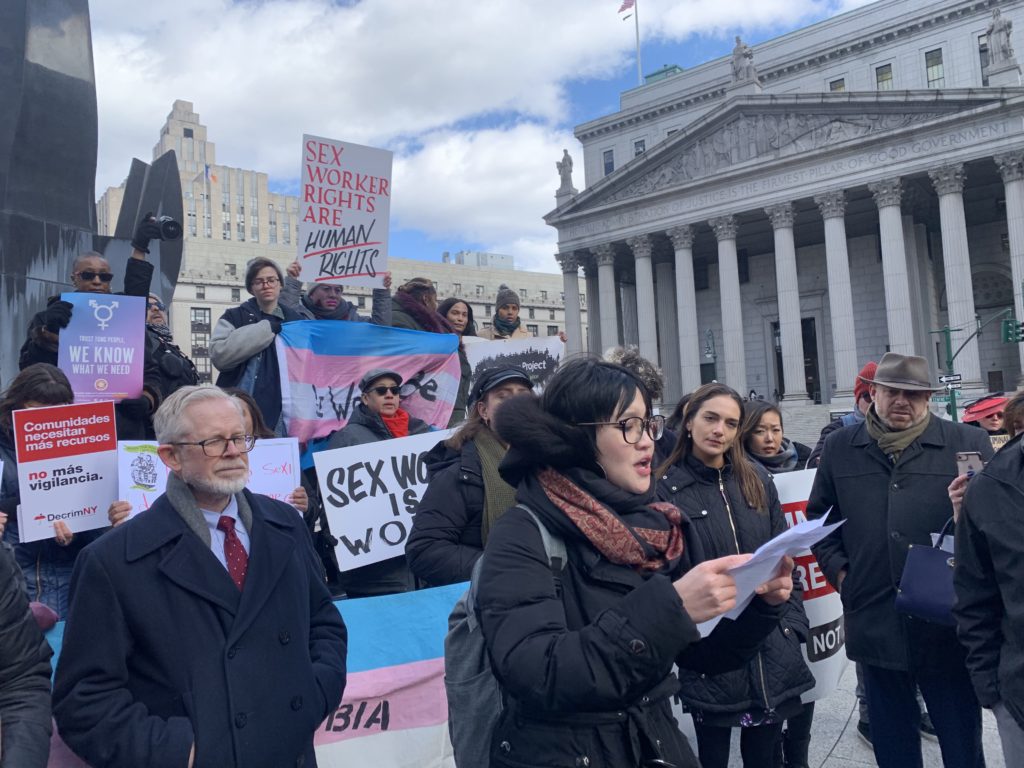Prostitution legalization advocates to meet with DA

State Senator Julia Salazar and State Assemblymember Richard Gottfried listen to an activist speak at a Feb. 25 sex work decriminalization rally. Photo: Noah Goldberg/Brooklyn Eagle
Brooklyn District Attorney Eric Gonzalez will meet with advocates of the decriminalization of sex work to discuss why they believe prostitution should be legal, he said Wednesday.
“We’re in a particularized time in criminal justice where people are looking for different solutions to old problems,” Gonzalez told reporters at a press conference.
The Brooklyn DA said he recently attended a forum hosted by people who support full decriminalization of sex work — but that his focus remains prosecuting sex-traffickers.